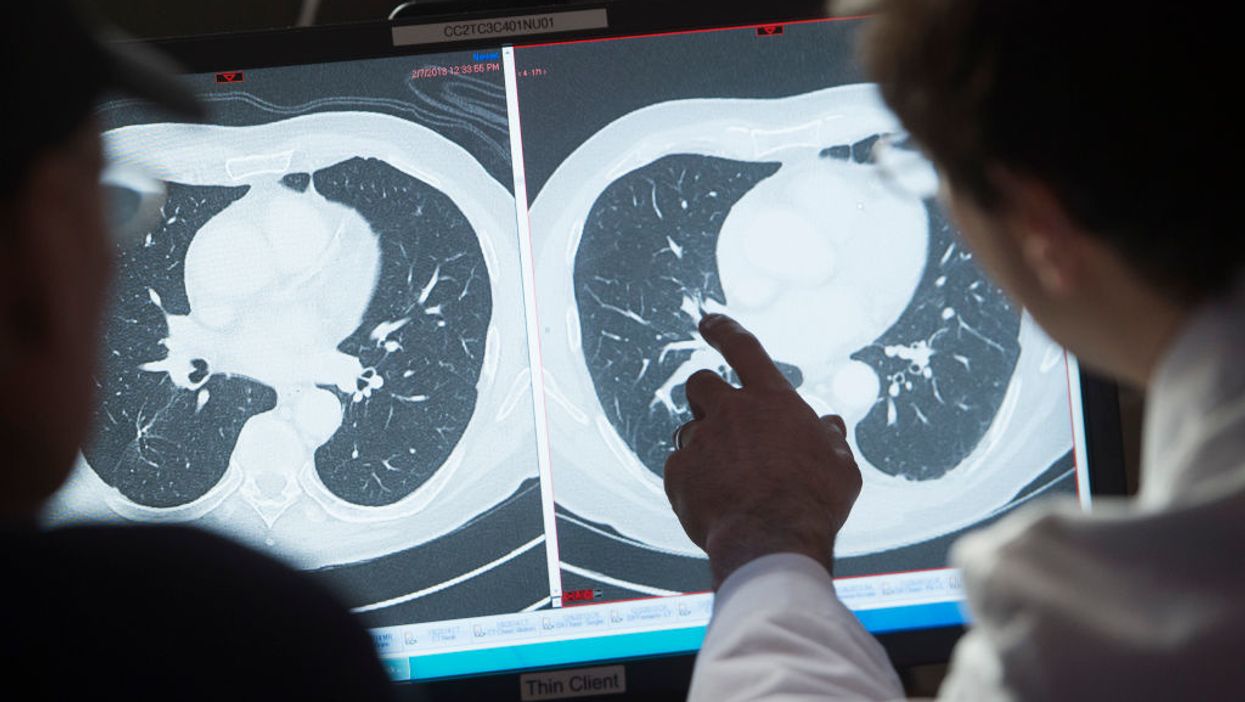
SAUL LOEB/AFP via Getty Images

Lab tests on mice offered 'encouraging' results. Is universal cancer therapy on the way?
A newly discovered immune cell that "may kill all cancer" has been discovered by British scientists by accident.
According to the Telegraph, researchers at Cardiff University were analyzing a blood bank in Wales, looking for immune cells that could fight bacteria, when they discovered an entirely new type of T-cell.
Now, the researchers are saying there is a potential that the ubiquitous T-cell could be harnessed to develop a universal cancer treatment that works for all people, against all cancers.
On Monday, the Cardiff University researchers published a new study in Nature Immunology detailing their discovery of the T-cells — a type of white blood cell — which are equipped with a new type of T-cell receptor (TCR) that finds and kills most human cancer types while ignoring healthy cells.
It does this by locating and destroying MR1, which is a molecule found on the surface of many types of cells, both cancerous and healthy. But the T-cells equipped with the new type of receptor know to only kill cancer cells — and that they do.
According to a news release from Cardiff, the researchers found in lab tests that the T-cells equipped with the new receptor were able to kill lung, skin, blood, colon, breast, bone, prostate, ovarian, kidney and cervical cancer cells, all while leaving healthy cells alone.
The researchers have not yet tested the T-cells on humans, but conducted the lab tests on mice injected with human cancers to "encouraging" results.
Professor Andrew Sewell, lead author on the study, said the discovery raised the prospect of "universal" cancer therapy.
"Cancer-targeting via MR1-restricted T-cells is an exciting new frontier. It raises the prospect of a 'one-size-fits-all' cancer treatment; a single type of T-cell that could be capable of destroying many different types of cancers across the population," he said.
"Previously nobody believed this could be possible," he added.
Experiments are now underway to determine exactly how the new TCR distinguishes between healthy cells and cancerous cells, the news release said.
Sewell noted that "current TCR-based therapies can only be used in a minority of patients with a minority of cancers."
What Sewell is referring to is an existing therapy called CAR-T, which involves removing T-cells from a patient's blood and genetically engineering them to seek and destroy cancer cells, a report on Futurism.com says.
While promising, CAR-T has limitations," the Futurism report argues. "It's patient-specific, works against only a small number of cancers, and isn't effective against solid tumors, which comprise the majority of cancers."
The new discovery by Cardiff researchers does not seem to exhibit the same limitations.
The Cardiff group hopes to test the new treatment in patients by the end of this year, but must conduct more safety testing first to verify with extreme confidence that the killer T-cells with the new receptor know only to kill cancer cells.
"There are plenty of hurdles to overcome, however, if this testing is successful, then I would hope this new treatment could be in use in patients in a few years' time," Sewell said.